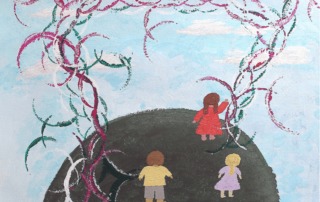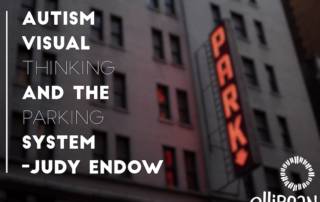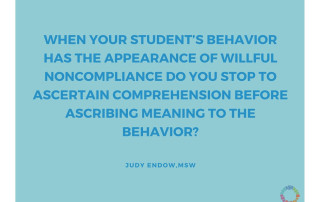The Advantage of Autistic Difference in Visual Perception
Autistic writer, artist and consultant, Judy Endow on autistic difference in visual perception. As a child, people sometimes thought I was stubborn and resistant when I did not want to allow them into my space or to do what they wanted me to do. They did not understand the negative effect they had on me and on my surroundings, and at the time, I did not have the words to explain it. Sensory Information and Perceptions Today I have the words and can explain. I do so in hopes that it might help others who may not yet have their
Autism Visual Thinking and the Parking System
Autism and Visual Thinking Many autistic people think visually. As a young child who thought visually I was often thought to be stubborn and insisting upon my own way when in reality I was merely trying to keep ahold of a thought. Today in my work I come in contact with many on the spectrum and see the same phenomenon at work. Let me explain with two examples: Example Parking Objects: Every day Britt comes to school with a toy from home. It is very difficult for her to leave the toy in her cubby so she carries it
Autistic Visual Thinking Impacts Comprehension
by Judy Endow I think in colors. My thinking colors have sound and movement. When I hear spoken words my neurology automatically goes for the match – a match for the words I hear to a familiar concrete picture of something in the world outside my skin or to an internal picture I have stored in my memory. . When I was a girl I heard the saying, “I got the world by the tail.” Immediately, the matching pictures of my experience of the world popped up for me to see. I found the best match and promptly assigned
People With Autism May Be Better at Processing Information
People with autism have an enhanced ability to process information, which may explain the apparently higher-than-average percentage of people with autism who work in the information technology industry according to a team of researchers at the Institute of Cognitive Neuroscience at University College London. Dr. Nilli Lavie, Dr. Anna Remington and Dr. John Swettenham published their findings in the Journal of Abnormal Psychology. "Our study confirms our hypothesis that people with autism have higher perceptual capacity compared to the typical population. This can only be seen once the task becomes more demanding, with more information to process. In the more challenging




